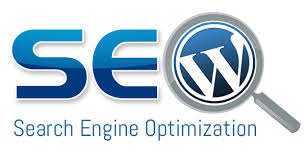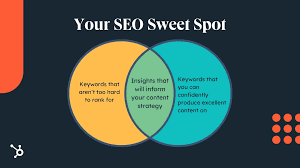Optimizing WordPress for SEO Success
WordPress is a powerful platform for building websites, but to ensure your site ranks well in search engine results, it’s essential to optimize it for SEO. Here are some key strategies to help you maximize your WordPress site’s SEO potential:
Choose an SEO-Friendly Theme
Start by selecting a responsive and fast-loading theme that is optimized for search engines. A well-coded theme will improve your site’s performance and user experience, both of which are crucial ranking factors.
Use SEO Plugins
WordPress offers a range of SEO plugins such as Yoast SEO and All in One SEO Pack that can help you optimize your site’s content, meta tags, and more. These plugins make it easy to improve your site’s visibility in search results.
Optimize Your Permalinks
Customize your permalinks to include relevant keywords and make them more user-friendly. Short, descriptive URLs are not only easier for visitors to remember but also help search engines understand the content of your pages.
Create High-Quality Content
Content is king when it comes to SEO. Produce informative, engaging, and original content that provides value to your audience. Use keywords naturally throughout your content but avoid keyword stuffing.
Optimize Images
Optimize images by using descriptive filenames and alt text that includes relevant keywords. Compress images to improve page load times, which is another important ranking factor.
Improve Site Speed
A fast-loading website not only enhances user experience but also boosts search engine rankings. Minimize plugins, optimize code, leverage browser caching, and use a reliable hosting provider to improve site speed.
Implement Schema Markup
Add schema markup to your content to help search engines understand the context of your pages better. This structured data can enhance the appearance of your listings in search results and increase click-through rates.
By following these WordPress SEO optimization tips, you can enhance your site’s visibility in search engine results pages (SERPs) and attract more organic traffic. Remember that SEO is an ongoing process, so continue monitoring performance metrics and refining your strategies for long-term success.
Six Essential WordPress SEO Optimization Strategies for Enhanced Visibility and Engagement
- Install an SEO plugin like Yoast SEO to optimize your WordPress site easily.
- Research and use relevant keywords throughout your content for better search engine visibility.
- Optimize your meta titles and descriptions to improve click-through rates on search engine results pages.
- Create a sitemap to help search engines index your website more effectively.
- Improve site speed by optimizing images, using caching plugins, and choosing a reliable hosting provider.
- Regularly update and promote your content to keep it fresh and engaging for both users and search engines.
Install an SEO plugin like Yoast SEO to optimize your WordPress site easily.
Installing an SEO plugin like Yoast SEO is a highly effective tip for optimizing your WordPress site effortlessly. Yoast SEO provides a user-friendly interface that guides you through optimizing your content, meta tags, and overall site structure for better search engine visibility. With features such as content analysis, readability checks, and XML sitemap generation, Yoast SEO streamlines the SEO process and helps you implement best practices without the need for technical expertise. By leveraging this powerful plugin, you can enhance your site’s SEO performance and increase your chances of ranking higher in search engine results.
Research and use relevant keywords throughout your content for better search engine visibility.
Researching and incorporating relevant keywords into your content is a crucial aspect of WordPress SEO optimization. By strategically using keywords that align with your target audience’s search queries, you can improve your site’s visibility in search engine results pages. These keywords help search engines understand the context of your content and match it with user intent, ultimately driving more organic traffic to your site. Remember to use keywords naturally and avoid overstuffing them, as this can have a negative impact on your SEO efforts. By focusing on relevant keywords, you can enhance the overall effectiveness of your content and attract more qualified visitors to your WordPress site.
Optimize your meta titles and descriptions to improve click-through rates on search engine results pages.
Optimizing your meta titles and descriptions is a crucial step in WordPress SEO optimization. By crafting compelling and relevant meta titles and descriptions that include targeted keywords, you can significantly improve your click-through rates on search engine results pages. These elements serve as your site’s first impression to potential visitors, enticing them to click through to your content. A well-optimized meta title and description not only enhance your site’s visibility in search results but also increase the likelihood of users engaging with your website, ultimately driving more organic traffic to your pages.
Create a sitemap to help search engines index your website more effectively.
Creating a sitemap for your WordPress website is a crucial step in optimizing its SEO performance. By providing search engines with a structured map of your site’s content, you make it easier for them to crawl and index all your pages efficiently. A well-organized sitemap enhances the visibility of your website in search results, ensuring that all your valuable content is properly recognized and ranked. Including a sitemap as part of your SEO strategy can lead to improved search engine rankings and increased organic traffic to your site.
Improve site speed by optimizing images, using caching plugins, and choosing a reliable hosting provider.
Improving site speed is a crucial aspect of WordPress SEO optimization. By optimizing images through descriptive filenames and alt text, utilizing caching plugins to reduce loading times, and selecting a reliable hosting provider for better server performance, you can significantly enhance user experience and boost your search engine rankings. Faster loading speeds not only improve SEO but also increase user engagement and retention, ultimately leading to a more successful website overall.
Regularly update and promote your content to keep it fresh and engaging for both users and search engines.
Regularly updating and promoting your content is a crucial aspect of WordPress SEO optimization. By keeping your content fresh and engaging, you not only provide value to your audience but also signal to search engines that your site is active and relevant. Updating content with new information, insights, or trends can help improve its visibility in search results and attract more organic traffic. Additionally, promoting your updated content through social media, email marketing, and other channels can increase its reach and engagement, further boosting its SEO performance. Consistent updates and promotion demonstrate your commitment to delivering quality content, ultimately enhancing your site’s credibility and authority in the eyes of both users and search engines.






